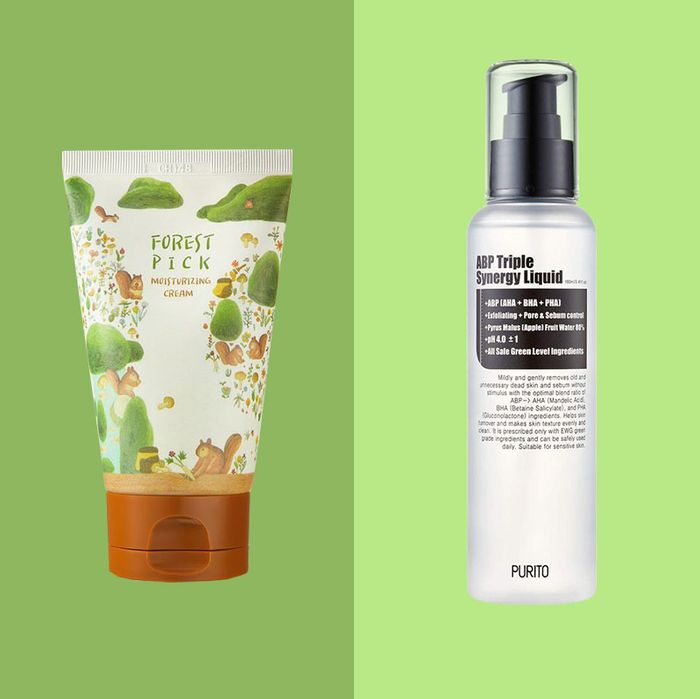Are you curious about what products are used in a facial? Look no further! At Centre of Wellness, we offer Beauty Training Courses that will provide you with all the answers and knowledge you need. From cleansers and exfoliators to masks and moisturizers, our courses offer a comprehensive understanding of the products used in a facial. Whether you’re a skincare enthusiast or aspiring beauty professional, our courses at https://beautytrainingcoursesonline.com/courses-overview/ are designed to give you the expertise you need to excel in the industry. Join us today and uncover the secrets behind a flawless facial!
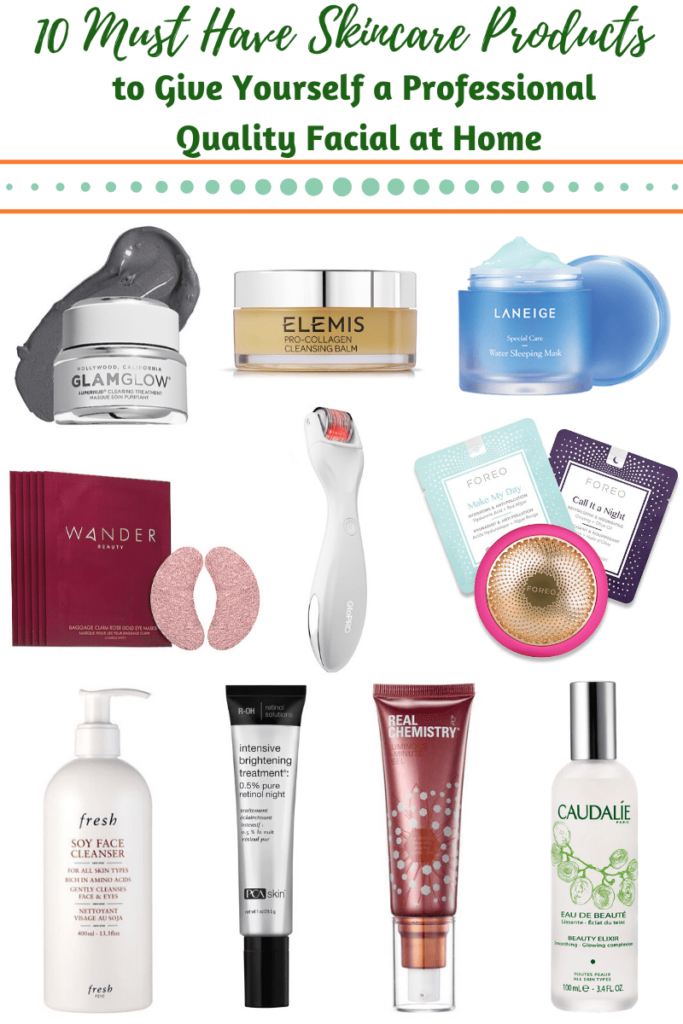
This image is property of i0.wp.com.
Cleansers
Cleansers are an essential part of any skincare routine, as they help to remove dirt, oil, and impurities from the skin. There are several different types of cleansers available, each suited for different skin types and concerns. Let’s explore some of the most common types of cleansers and their benefits.
Foaming Cleansers
Foaming cleansers are popular for their ability to create a rich lather that effectively removes dirt and oil from the skin’s surface. They are generally recommended for those with oily or combination skin, as they can help to dissolve excess sebum and leave the skin feeling clean and refreshed. Foaming cleansers are often formulated with ingredients like salicylic acid or tea tree oil to help combat acne and prevent breakouts.
Gel Cleansers
Gel cleansers are another excellent option for those with oily or combination skin. These cleansers have a lightweight gel-like texture that helps to cleanse the skin without stripping away its natural oils. Gel cleansers are gentle and hydrating, making them suitable for daily use. They typically contain ingredients like aloe vera or hyaluronic acid to soothe and moisturize the skin, leaving it feeling balanced and refreshed.
Cream Cleansers
Cream cleansers are ideal for those with dry or sensitive skin, as they provide gentle yet effective cleansing without causing irritation or dryness. The creamy texture of these cleansers helps to moisturize and nourish the skin, leaving it feeling soft and supple. Cream cleansers often contain ingredients like shea butter or chamomile extract, which have soothing properties that can calm and hydrate sensitive skin.
Oil-based Cleansers
Oil-based cleansers are a fantastic choice for removing makeup and sunscreen, as they effectively dissolve even the most stubborn waterproof products. These cleansers work on the principle that like dissolves like, meaning that the oil-based cleanser will break down the oils in your makeup and cleanse it away. Oil-based cleansers are suitable for all skin types, including those with oily skin, as they often emulsify and rinse off easily without leaving a greasy residue. Some oil-based cleansers also contain beneficial oils like jojoba oil or argan oil, which can provide additional nourishment to the skin.
Exfoliators
Exfoliating the skin regularly is crucial for maintaining a healthy and radiant complexion. Exfoliators help to remove dead skin cells, unclog pores, and improve the skin’s texture and tone. There are two main types of exfoliators: physical exfoliators and Chemical exfoliators.
Physical Exfoliators
Physical exfoliators, also known as scrubs, contain small particles or granules that physically buff away dead skin cells when massaged onto the skin. These exfoliators can come in the form of grainy pastes, powders, or even brushes and sponges. They are fantastic for an instant glow and smoother skin texture. Physical exfoliators are particularly beneficial for those with oily or combination skin, as they help to remove excess oil and unclog pores.
Chemical Exfoliators
Chemical exfoliators, on the other hand, use ingredients like alpha-hydroxy acids (AHAs) and beta-hydroxy acids (BHAs) to exfoliate the skin at a deeper level. AHAs, such as glycolic acid and lactic acid, gently dissolve the bonds between dead skin cells, revealing brighter and smoother skin. BHAs, such as salicylic acid, can penetrate the pores and effectively unclog them, making them an excellent choice for those with acne-prone or congested skin. Chemical exfoliators are typically available in toner or serum forms and are suitable for all skin types.
Toners
Toners are often misunderstood but play a crucial role in maintaining healthy skin. They help to balance the skin’s pH levels, remove any remaining traces of dirt or cleanser, and provide additional hydration and nourishment. There are different types of toners available, each designed to address specific skin concerns.
Refreshing Toners
Refreshing toners are lightweight and usually water-based, making them suitable for all skin types. These toners are ideal for providing an instant burst of hydration and leaving the skin feeling revitalized. They often contain ingredients like hyaluronic acid, green tea extract, or rosewater, which have soothing and refreshing properties. Refreshing toners can help to prep the skin for the next steps of your skincare routine and enhance the absorption of subsequent products.
Soothing Toners
Soothing toners are perfect for those with sensitive or inflamed skin. These toners often contain gentle ingredients like chamomile extract or aloe vera, which have calming and anti-inflammatory properties. They can help to reduce redness, irritation, and blemishes, leaving the skin feeling soothed and balanced. Soothing toners are typically alcohol-free, making them suitable for all skin types, especially those prone to sensitivity.
Astringent Toners
Astringent toners are designed for oily or acne-prone skin. These toners contain ingredients like witch hazel or tea tree oil, which help to tighten the skin, minimize the appearance of pores, and control excess oil production. Astringent toners can help to remove any leftover impurities and balance the skin’s natural oils, leaving it feeling clean and refreshed. It’s worth noting that astringent toners may be too drying for those with dry or sensitive skin.
Masks
Masks are a great way to give your skin a boost of nourishment and address specific concerns in a targeted manner. There are various types of masks available, each offering unique benefits for the skin.
Clay Masks
Clay masks are excellent for purifying and detoxifying the skin. They typically contain ingredients like kaolin clay or bentonite clay, which absorb excess oil, unclog pores, and remove impurities. Clay masks can help to mattify oily skin and reduce the appearance of enlarged pores. They are best suited for those with combination or oily skin, while those with dry or sensitive skin should use clay masks sparingly to avoid over-drying.
Sheet Masks
Sheet masks have gained immense popularity in recent years, and for good reason. These pre-cut masks are soaked in a serum or essence and are made from materials like cotton or hydrogel. They are incredibly convenient and provide intense hydration and nourishment to the skin. Sheet masks come in a wide range of varieties, such as brightening, hydrating, or anti-aging, allowing you to choose one that suits your specific needs. They are suitable for all skin types, and the excess serum can be massaged into the skin for extra benefits.
Gel Masks
Gel masks are typically transparent and have a cooling and soothing effect on the skin. They are perfect for those with sensitive or irritated skin, as they can help to reduce redness and inflammation. Gel masks often contain ingredients like aloe vera or cucumber extract, which provide soothing and hydrating benefits. These masks are also great for providing a burst of hydration to dry or dehydrated skin.
Cream Masks
Cream masks are rich and deeply nourishing. They are designed to provide intense hydration and moisturization to the skin, making them perfect for those with dry or mature skin. Cream masks often contain ingredients like shea butter or hyaluronic acid, which help to replenish moisture and plump up the skin. These masks are typically left on for a longer period, allowing the skin to absorb the nutrients and achieve a more radiant complexion.
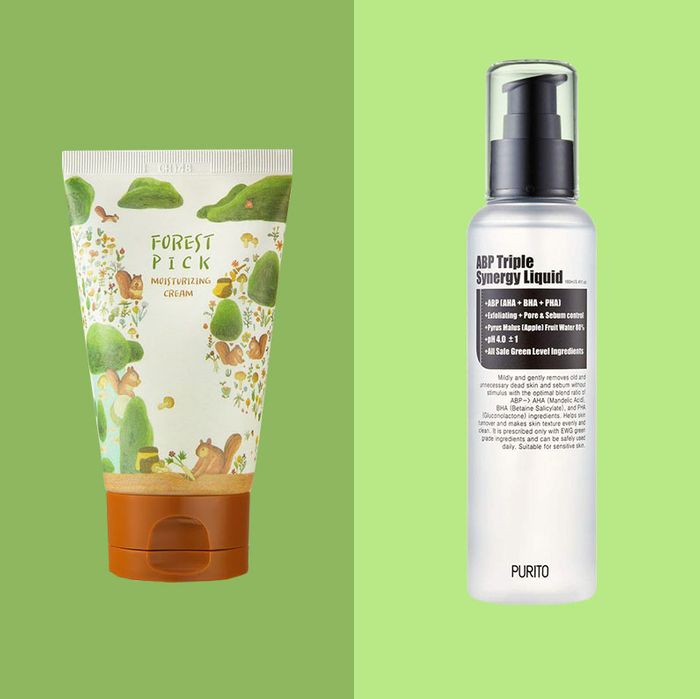
This image is property of pyxis.nymag.com.
Serums
Serums are lightweight, highly concentrated formulations that deliver active ingredients deep into the skin. They are known for their potent benefits and ability to address specific skin concerns effectively.
Hydrating Serums
Hydrating serums are a must-have for all skin types but are particularly beneficial for those with dry or dehydrated skin. These serums often contain humectants like hyaluronic acid or glycerin, which attract and retain moisture in the skin. Hydrating serums provide a surge of hydration to the skin and can help to improve its overall texture and plumpness.
Brightening Serums
Brightening serums are designed to target uneven skin tone, dark spots, and hyperpigmentation. These serums often contain ingredients like vitamin C or niacinamide, which help to inhibit melanin production and promote a more even complexion. Brightening serums can help to fade stubborn dark spots and give the skin a healthy and radiant glow.
Anti-aging Serums
Anti-aging serums are formulated with ingredients that help to combat the signs of aging, such as fine lines, wrinkles, and loss of elasticity. These serums often contain antioxidants like vitamin E or retinol, which help to protect the skin from free radicals and stimulate collagen production. Anti-aging serums can help to improve the overall firmness and elasticity of the skin, resulting in a more youthful appearance.
Moisturizers
Moisturizers are a crucial step in any skincare routine, as they help to hydrate and protect the skin from external aggressors. There are different types of moisturizers available, each tailored to specific skin types and needs.
Daytime Moisturizers
Daytime moisturizers are lightweight and often include SPF protection to shield the skin from harmful UV rays. These moisturizers are designed to be worn under makeup and provide hydration and sun protection throughout the day. Daytime moisturizers typically have a non-greasy texture and may contain antioxidants or soothing ingredients to calm and protect the skin from environmental damage.
Nighttime Moisturizers
Nighttime moisturizers are typically richer and more nourishing than daytime moisturizers. They are formulated to work while you sleep, replenishing moisture and repairing the skin. Nighttime moisturizers often contain ingredients like peptides or hyaluronic acid, which help to stimulate collagen production and lock in hydration. These moisturizers provide intense moisture and can help to improve the skin’s texture and radiance.
Oil-free Moisturizers
Oil-free moisturizers are specifically designed for those with oily or acne-prone skin. These moisturizers are lightweight and non-comedogenic, meaning they won’t clog the pores or contribute to breakouts. Oil-free moisturizers often contain ingredients like salicylic acid or tea tree oil, which help to control excess oil production and keep the skin matte throughout the day. These moisturizers provide hydration without leaving a greasy residue, making them perfect for those with combination or oily skin.
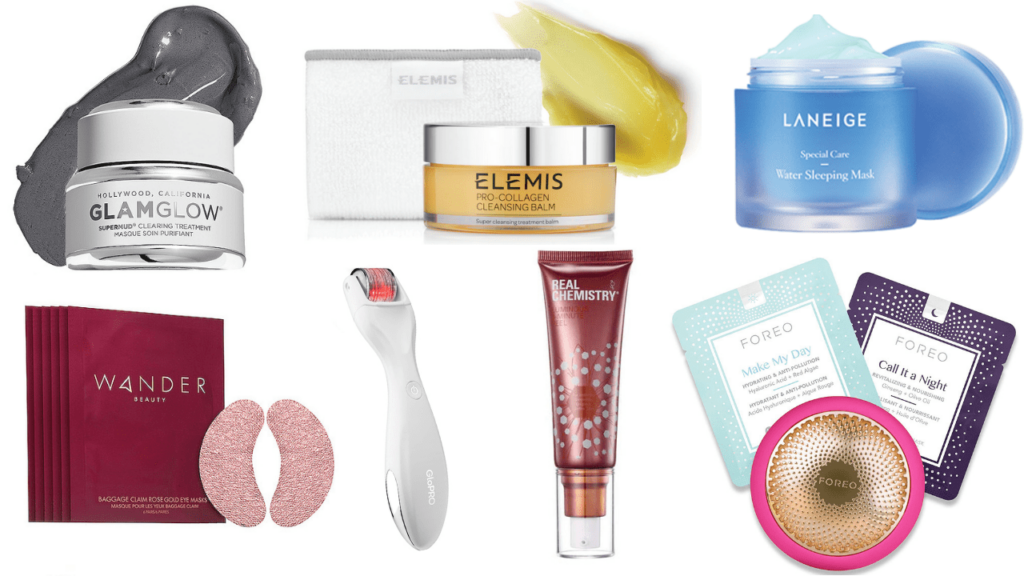
This image is property of i0.wp.com.
Eye Creams
The delicate skin around the eyes is prone to dryness, fine lines, and other signs of aging. Eye creams are specially formulated to address these concerns and provide targeted hydration and nourishment.
Brightening Eye Creams
Brightening eye creams are formulated with ingredients like vitamin C or kojic acid, which help to fade dark circles and brighten the under-eye area. These creams are perfect for those struggling with discoloration or dullness around the eyes. Brightening eye creams can help to restore a more youthful and vibrant appearance to the eyes.
Firming Eye Creams
Firming eye creams are designed to address sagging or drooping eyelids and improve the overall elasticity of the skin around the eyes. These creams often contain peptides or collagen-boosting ingredients that help to lift and tighten the skin, resulting in a more lifted and youthful appearance. Firming eye creams can also help to reduce the appearance of fine lines and wrinkles.
Anti-puffiness Eye Creams
Anti-puffiness eye creams are perfect for those struggling with under-eye bags or puffiness. These creams usually contain ingredients like caffeine or cucumber extract, which have both soothing and decongesting properties. Anti-puffiness eye creams can help to reduce swelling and inflammation, making the eyes look more awake and refreshed.
Sunscreens
Protecting your skin from the harmful effects of the sun is crucial for preventing premature aging, sunburns, and skin cancer. Sunscreens come in various forms and should be applied daily as the last step of your skincare routine.
Chemical Sunscreens
Chemical sunscreens work by absorbing the sun’s UV rays and converting them into heat, which is then released from the skin. These sunscreens often contain ingredients like avobenzone or octinoxate, which provide broad-spectrum protection against both UVA and UVB rays. Chemical sunscreens tend to have a lightweight and easily spreadable texture, making them suitable for all skin types.
Physical Sunscreens
Physical sunscreens, also known as mineral sunscreens, work by creating a physical barrier on the skin that reflects and scatters the sun’s UV rays. These sunscreens typically contain ingredients like zinc oxide or titanium dioxide, which provide broad-spectrum protection without the need for chemical filters. Physical sunscreens are generally better tolerated by sensitive skin and are suitable for all skin types.
Tinted Sunscreens
Tinted sunscreens offer the dual benefits of sun protection and light coverage. These sunscreens are often formulated with natural mineral pigments that help to even out the skin tone and provide a subtle tint. Tinted sunscreens are perfect for those who want a more natural-looking complexion while still enjoying the benefits of sun protection. They are available in various shades to cater to different skin tones.
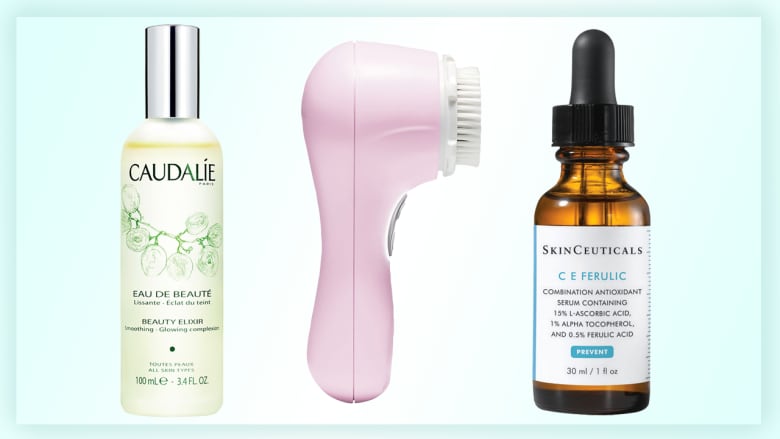
This image is property of i.cbc.ca.
Facial Oils
Facial oils have become increasingly popular in recent years due to their nourishing and transformative properties. They can provide intense hydration, balance the skin’s natural oils, and promote a healthier and smoother complexion.
Nourishing Facial Oils
Nourishing facial oils are rich in essential fatty acids, antioxidants, and vitamins, which help to replenish moisture and support the skin’s natural barrier. These oils often contain ingredients like argan oil, rosehip oil, or jojoba oil, which have deeply hydrating and regenerating properties. Nourishing facial oils are suitable for all skin types, including dry, dehydrated, and mature skin.
Anti-aging Facial Oils
Anti-aging facial oils are specifically formulated to target signs of aging, such as fine lines, wrinkles, and loss of elasticity. These oils often contain ingredients like rose oil, evening primrose oil, or sea buckthorn oil, which are known for their anti-aging benefits. Anti-aging facial oils help to stimulate collagen production and improve the skin’s firmness and texture, resulting in a more youthful appearance.
Balancing Facial Oils
Balancing facial oils work to regulate the skin’s natural sebum production and restore balance to oily or combination skin. These oils often contain ingredients like tea tree oil, grapeseed oil, or jojoba oil, which are lightweight and have sebum-balancing properties. Balancing facial oils can help to moisturize and hydrate the skin without clogging the pores or causing breakouts.
Hydrating Mists
Hydrating mists are a refreshing and convenient way to instantly hydrate and revitalize the skin throughout the day. They can be used as a toner, a mid-day pick-me-up, or a setting spray to keep makeup in place.
Rosewater Mists
Rosewater mists are beloved for their hydrating and soothing properties. They are often made from distilled rose petals and have a delicate and pleasant scent. Rosewater mists help to balance the skin’s pH levels, reduce redness and inflammation, and provide a boost of hydration. They are suitable for all skin types and can be used throughout the day to refresh and invigorate the skin.
Aloe Vera Mists
Aloe vera mists are perfect for those with sensitive or sunburned skin. Aloe vera has exceptional soothing and hydrating properties that can help to calm and heal irritated skin. Aloe vera mists can provide instant relief from inflammation, redness, or discomfort, making them a skincare essential for hot summer days or after prolonged sun exposure. They are suitable for all skin types, including acne-prone or oily skin.
Cucumber Mists
Cucumber mists are incredibly refreshing and are perfect for those with tired or puffy skin. Cucumbers have natural cooling and decongesting properties that can help to reduce puffiness and inflammation. Cucumber mists are also packed with antioxidants and vitamins that nourish and hydrate the skin. They are ideal for a quick pick-me-up or as a final step in your skincare routine to leave the skin feeling refreshed and rejuvenated.
In conclusion, building a comprehensive skincare routine involves using a variety of different products that cater to your specific skin concerns and needs. Cleansers, exfoliators, toners, masks, serums, moisturizers, eye creams, sunscreens, facial oils, and hydrating mists all play a vital role in maintaining a healthy and glowing complexion. By understanding the different types of products available and their benefits, you can create a skincare routine that is tailored to your own unique skin type and concerns. Remember to always patch test new products and consult with a skincare professional if you have any specific sensitivities or conditions. Happy skincare journey!

